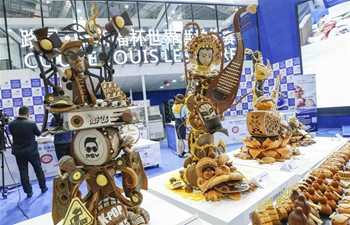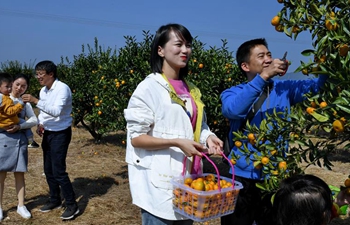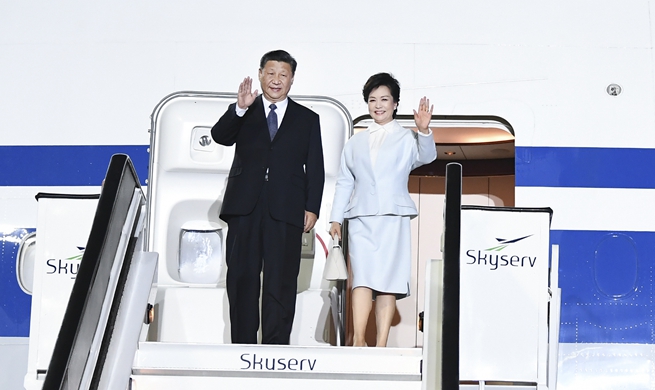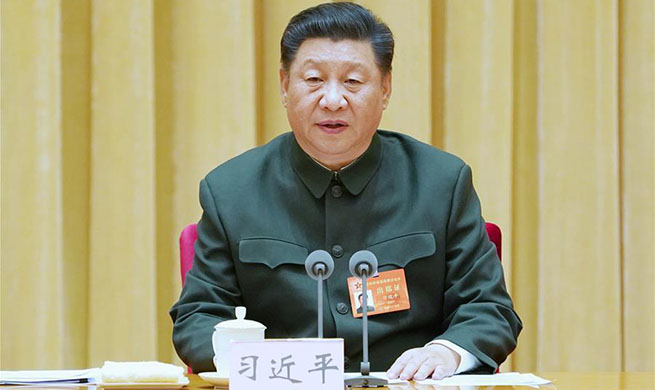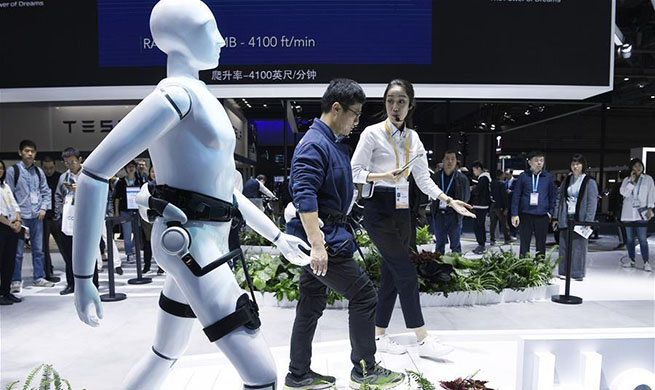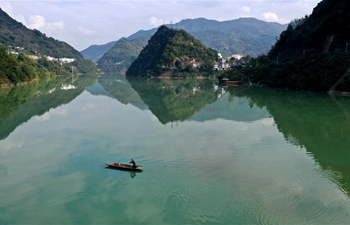JAKARTA, Nov. 11 (Xinhua) -- Indonesian President Joko Widodo on Monday told ministers to pay more heed to the expansion of the oil processing units' refinery capacity and construction, aiming at bringing down current account and trade deficits.
The president also asked them to focus on efforts to boost oil lifting and succeed the biodiesel program.
Indonesia's oil refineries only produce 600,000 to 650,000 barrel oil per day, comprising gasoline and diesel oil, while the country needs 1.3 to 1.4 million barrel oil per day, and consequently, import has to be conducted to fill the gap, according to Ignatius Tallulembang, state oil and gas firm PT Pertamina's director of refinery and petrochemical mega-projects.
The Southeast Asia's biggest economy has to ship oil to comply with rising domestic demands amid accelerating economic growth, according to PT Pertamina.
The shipments have contributed the most to the country's current account and trade deficit gaps, especially when the U.S. dollar was stronger than rupiah, ratcheting up cost of imports. Besides, a wide gap of the deficit could lead the country to be vulnerable on speculation acts by financial speculators.
"Therefore, oil refinery development has to be put on priority and oil lifting must also be boosted," he told a cabinet meeting at the Presidential Palace.
Widodo asked the ministers to escort the government's renewable energy program, such as biodiesel use with a 20 percent bio-content, also known as B20.
Indonesia's oil and gas sector recorded a 8.57 billion U.S. dollar deficit last year, according to data from the National Bureau of Statistics.
Indonesia's crude oil production peaked at 1.7 million barrel per day in the mid of the 1990s, and notwithstanding, aging well and lackluster of recoveries of new reserve in recent years have squeezed the production in about half, turning the country into a net oil importer, according to the country's oil and gas upstream regulator.
To pare further downshift in oil output, the government has scrambled to stave off obstacles in the country's oil and gas upstream industry, including taking down some rules and poor bureaucracy, which had weighted down efforts to entice investment in the sector.


